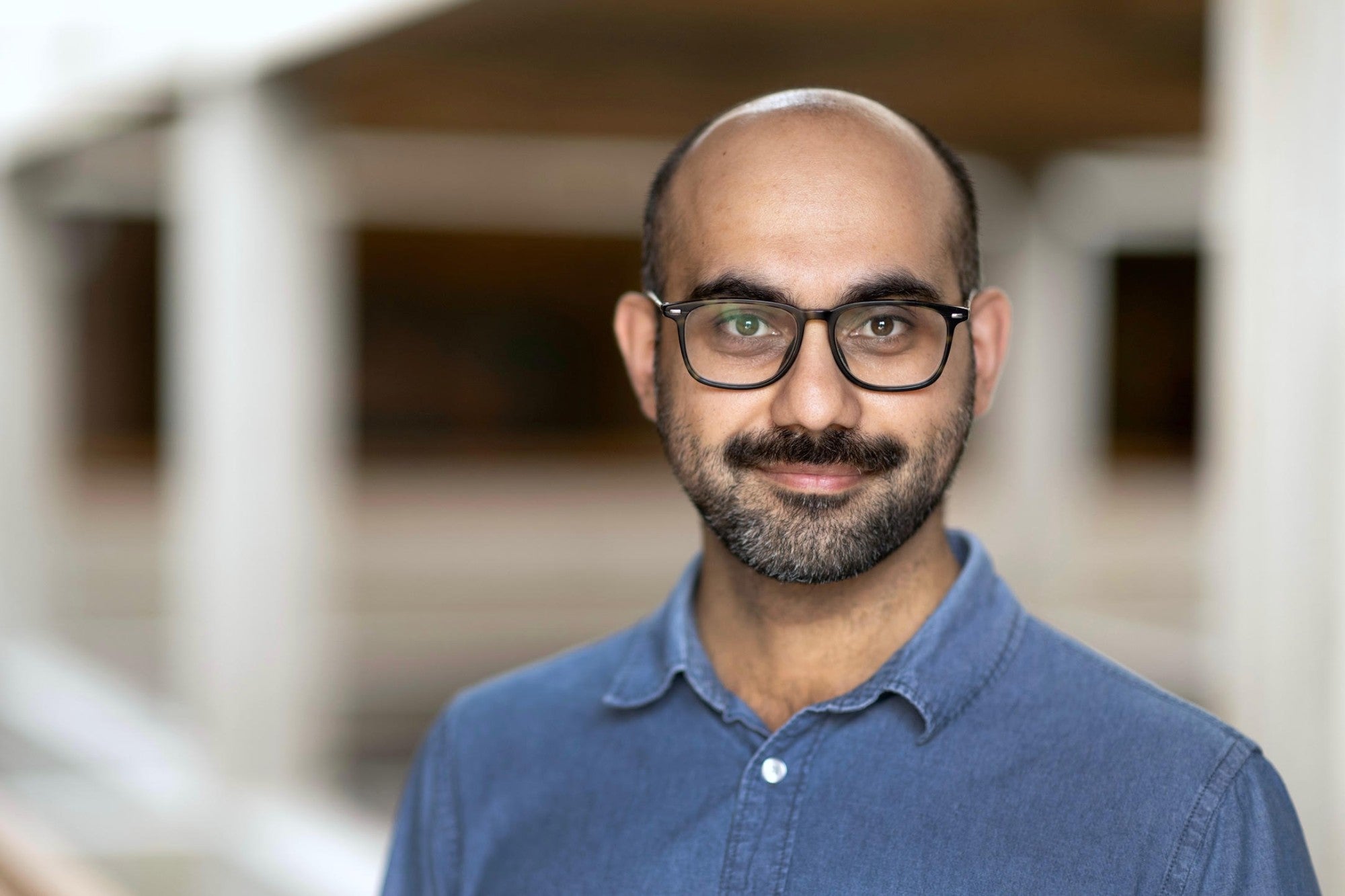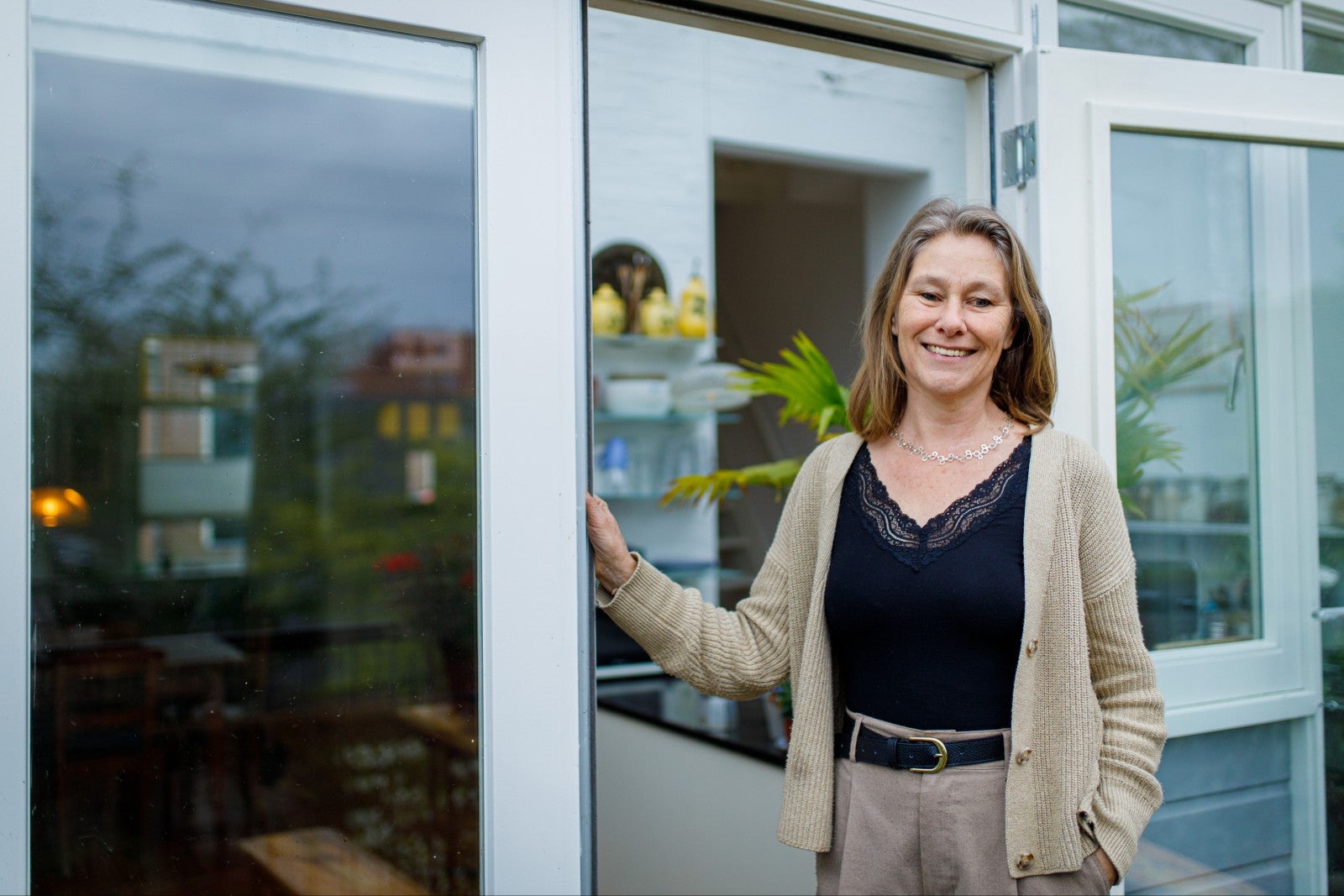Journalist Ricky Mohabbat (31) was a first-generation student at VU Amsterdam and made a documentary about it. „I thought: this is just how university works, and apparently, I’m the one who doesn’t get it. If I admitted that, I’d be exposed, and everyone would see that I didn’t belong there."
In the four-part series Ricky the Imposter (available on NPO 3LAB, ed.), you mention that you only realised afterwards that you were a first-generation student. What challenges did you face during your studies?
„Where do I even begin? It was about understanding the difference between a lecture and a seminar, how the credit system worked, and not knowing that I could go to a student counsellor for support. I think if your parents have studied, you naturally discuss these things at the dinner table. You hear about student associations where you can meet people and discover the university experience together."
„But it was also in the lecture halls. We often discussed philosophers and theories I had never heard of, books I had never read. I didn't dare raise my hand, because then everyone would know that I was the only one who didn’t understand. Of course, I didn’t know if the others actually knew those writers or if they were bluffing like me, but we never talked about it."
Why didn’t you talk to anyone about it?
„I thought: this is just how university works, and apparently, I’m the one who doesn’t get it. If I admitted that, I’d be exposed, and everyone would see that I didn’t belong there. Only later did I hear from former classmates that they felt exactly the same way, but no one ever spoke about it. That’s such a shame because it meant I felt alone in my insecurities."
Did you relate this feeling of alienation to your cultural background?
„I’m sure that played a subconscious role. At the university of applied sciences – where I studied Media, Information and Communication – the social aspect was already a big challenge. I grew up in Lelystad, where my environment was quite diverse, and suddenly I found myself in a world where almost everyone was blond and seemed to come from a different social class."
„Reading academic texts? I didn’t even know how to approach that. Close reading? Never heard of it."
„During my master’s in Journalism at VU Amsterdam, the academic aspect was added on top of that. Reading academic texts? I didn’t even know how to approach that. Close reading? Never heard of it. I had no idea how to prepare for an exam, so I worked myself to the bone."
In your documentary, you not only discuss feeling alienated at university but also at home. How did that happen?
„I come from a Surinamese-Hindustani family, a culture where the collective is central. Family is everything; you do things together. In Dutch culture, individuality and personal development are the focus. I wanted that too, but it meant distancing myself from my background. I stopped attending family birthdays, I wanted to break free."
„Later, I also discovered my homosexuality, which added another layer of alienation. I thought I couldn’t be who I was within my world, so I kept it to myself and withdrew even more. It’s no surprise that I felt increasingly lonely. In hindsight, I should have just shared it."
„One of the hardest moments was talking to my mother. I absolutely didn’t want her to feel like I was blaming her or my father for anything. I have a beautiful life thanks to them, but that doesn’t take away from the fact that I felt incredibly lonely and confused during my student years. Back then, I just didn’t have the words for it. I actually find it quite absurd that I needed a documentary to finally talk to my mother about my loneliness."
„I eventually learned table manners from watching The Real Housewives of Beverly Hills."
Did your imposter syndrome extend beyond university?
„Yes, absolutely. Even socially, my fellow students seemed to know rules of behaviour that I had no clue about. I remember once dining at a fancy restaurant. A friend said to another girl, ‘Oh, you’re holding your knife and fork so oddly.’ I thought: are there rules for that? I eventually learned table manners from watching The Real Housewives of Beverly Hills."
Do you still experience imposter syndrome?
„Definitely. I once had to interview the well-known lawyer Wim Anker. I felt like it went terribly and thought afterwards: he must think I’m stupid. Two days later, my editor-in-chief received a message from him complimenting the interview. Or the time I heard I was being nominated for a Tegel (a prestigious journalism award, ed.), and my first thought was: it must be because of my cultural background. It’s really a mind game."
Nowadays, VU has the Better Prepared programme, which helps first-generation students prepare for university life. What do you think about this?
„If I had known about it, I definitely would have joined. I just didn’t know what the term meant, so I never looked for it. And you shouldn’t make the mistake of thinking that all first-generation students come from diverse cultural backgrounds. Many are also white and/or native Dutch students who don’t come from an academic family. You just have to know that you’re one of them."
Still, in your documentary, you say that VU Amsterdam meant a lot to you. Why?
„It was at VU Amsterdam that a lecturer told me: ‘Precisely because you’ve taken a different path and have a different background, you have something to contribute.’ Since then, I’ve embraced that. My story, my experiences – that’s what sets me apart from the rest."







